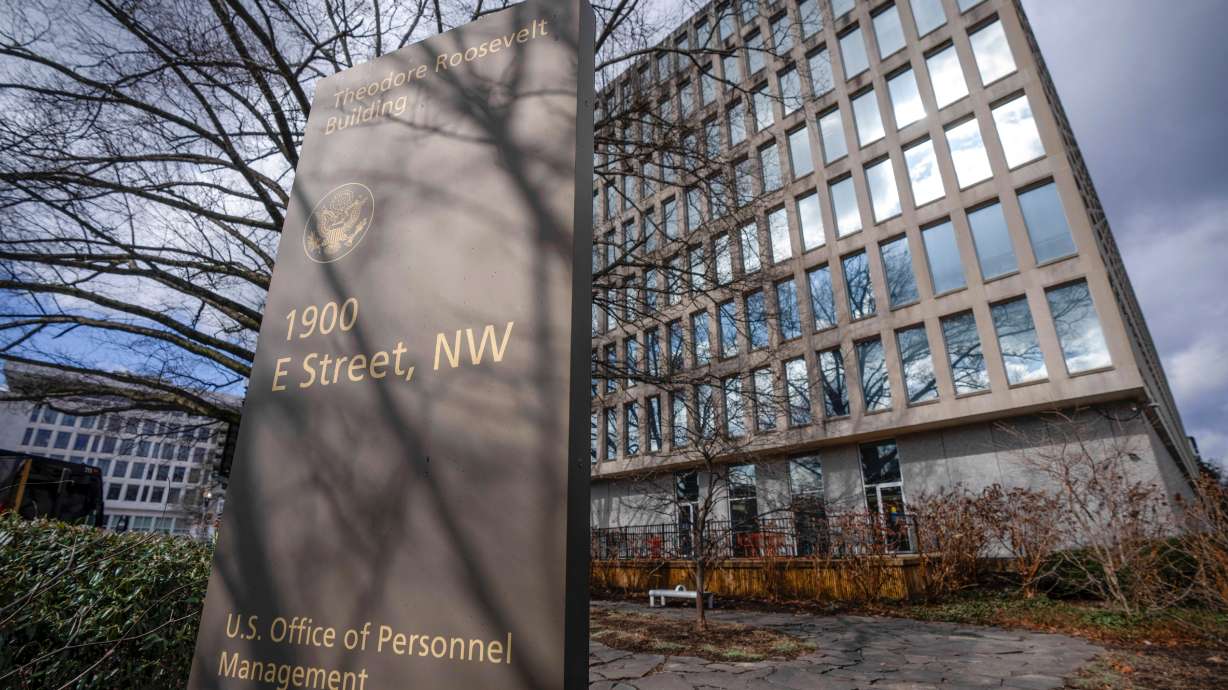Estimated read time: 3-4 minutes
This archived news story is available only for your personal, non-commercial use. Information in the story may be outdated or superseded by additional information. Reading or replaying the story in its archived form does not constitute a republication of the story.
SALT LAKE CITY — Federal employees need to return to their offices, say Utah Sen. Mitt Romney, a Republican, and West Virginia Sen. Joe Manchin, a Democrat.
Their new bill, dubbed the "Back to Work Act of 2024," would limit remote work to no more than 40% of days within a federal employee's pay period. Agencies would be required to monitor and report on telework activities, including the "potential negative effects on productivity, morale, security vulnerabilities, or waste, fraud, or abuse."
"Federal employees play an important role in ensuring that the government works for the American people, and it is past time for them to get back into the office to do the work that our constituents expect from their government," Romney said in a statement.
He described the bipartisan bill as requiring "federal employees to work in the office for a majority of the time, while still allowing reasonable flexibility for telework." That includes waivers for some positions where telework is deemed needed to support agency needs.
An issue for Romney and Manchin, who aren't running for reelection, is a Government Accountability Office report issued last fall that found that 17 of 24 federal agency headquarters "were at 25% capacity or less in the first 3 months of 2023." The office recommended that new benchmarks for building utilization be established "that account for greater levels of telework."
Romney said it's been nearly a year since the nation's COVID-19 public health emergency declaration ended "yet most of our federal office buildings remain empty — wasting millions of taxpayer dollars every day. Americans deserve to have a federal workforce that is both present and productive."
Manchin said in a statement that federal employees "have a unique obligation to connect with the citizens they serve, and exclusively remote work hinders this essential collaboration. Local businesses in West Virginia and across the country are also suffering from a lack of consumer traffic during the work days, which is negatively impacting our local economies."
The 2023 annual government-wide survey conducted by the U.S. Office of Personnel Management found that nearly 70% of federal employees work remotely at least occasionally, according to an article last November in Federal Times, a news source for federal workers and managers.
In the same survey of more than 625,000 employees, about one-third said they don't work remotely at all, "either because of technological limitations, in-office requirements or personal choice," Federal Times reported, noting that the split hadn't changed since the previous year despite pressures from Congress and the White House to step up in-office work.
Employees and unions have pushed back. The American Federation of Government Employees, which represents some 750,000 federal and Washington, D.C., government workers, said in a recent issues paper that telework "promotes healthier workers who do not endure as much burnout or use as much sick leave and can enjoy a more robust work-life balance."
Asked about the new Romney-Manchin bill, a spokesperson for the union told the Deseret News, "It would be a serious mistake for Congress to restrict telework. It would drive off talented employees and harm the services Americans expect from the federal government."
"For federal workers who hold jobs where it is appropriate, telework is a key tool for recruiting and retaining the best employees, despite generally inferior pay in the federal government," the spokesperson said, calling telework levels among federal employees comparable to the private sector.
The spokesperson noted "some 78% of federal workers do not usually telework, due to the nature of their jobs. Law enforcement agents, corrections officers, food safety inspectors, munitions workers, and transportation safety officers, for example, were unable to telework even in the darkest days of the pandemic."









